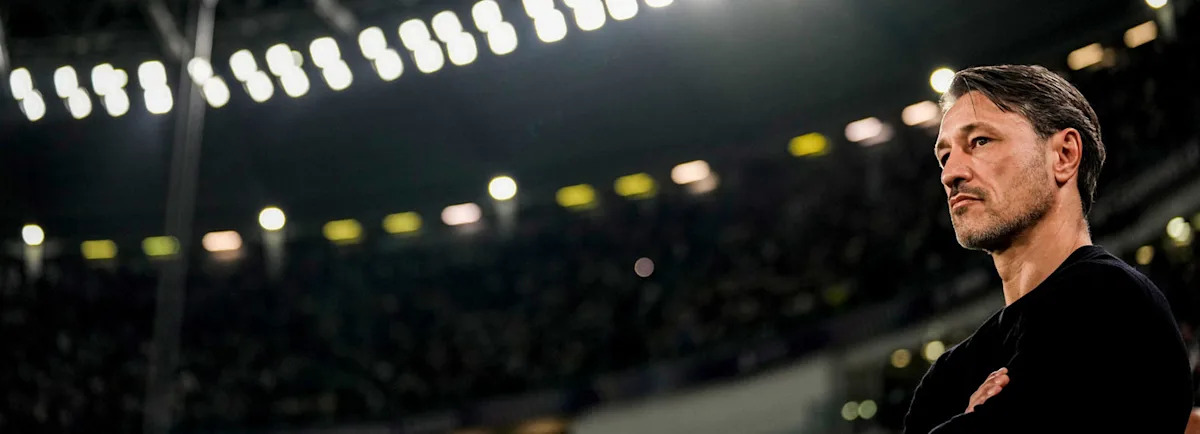In recent discussions surrounding Niko Kovac’s management style and his team’s recent performance, the sentiment conveyed is one of mixed emotions—satisfaction with parts of the performance yet disappointment due to the final result. Kovac’s comments following a match reflect both commendation for his players and a sense of urgency to improve critical aspects of their gameplay.
### Key Takeaways from Kovac’s Reflections
In the post-match interview, Kovac noted, “It was nerve-wracking. I have to pay the team a compliment for playing so well in front of such passionate fans.” This comment highlights an important aspect of Kovac’s managerial philosophy: recognizing and appreciating the efforts of his team while also addressing areas for growth. Under his leadership, there seems to be an emphasis on nurturing confidence among players, affirming that positive performances should be acknowledged, even in the face of disappointing results.
Kovac emphasized the importance of controlling the game, suggesting that while possession may not always translate to scoring opportunities, it is crucial for maintaining the pace and rhythm of the match. “We didn’t create much going forward, but we controlled the game,” he asserted, underscoring a strategic approach that prioritizes game management. This approach is particularly critical in high-stakes matches where a single error can shift the momentum.
### Disappointment Amidst Progress
Despite the praise for his players, there remains a bitter aftertaste due to lapses late in the match. Players such as Gregor Kobel echoed this sentiment, expressing disappointment in conceding two goals during stoppage time: “We had to win the game. We can’t concede two goals in stoppage time. The result, getting one point, is okay, but we had the chance to get three.” This aligns with Kovac’s desire for his players to exhibit more maturity on the field, especially when holding a lead.
Kobel’s comments also hint at a larger trend in football psychology: the importance of composure in closing out games. The inability to protect a lead in the final moments signifies flaws that need addressing. For fans and analysts, understanding this aspect of a team’s game management is crucial, as it directly correlates with a team’s overall success.
### The Struggle to Find Balance
Felix Nmecha brought an additional layer to the discussion, lamenting the frustrations of conceding late in the game despite an otherwise solid performance: “We showed, like we did last year, that we can compete with the top teams. We did that very well.” Here, Nmecha points to the paradox of modern football; while individual and team performance may shine, it is often overshadowed by critical mistakes in crucial moments.
Further illustrating these frustrations, Karim Adeyemi noted that the team started well but faltered towards the end, saying, “We needed to see it through – and then we’d all be happy. It just wasn’t meant to be.” This repeated theme of struggling to maintain focus during decisive phases of the match underscores a broader narrative in Kovac’s managing style—balancing aggression and caution.
### Lessons and Opportunities for Improvement
What can be gleaned from Kovac’s post-match summary is that there are both commendable strengths and critical weaknesses within the team. The ability to control the pace and keep possession indicates technical proficiency and a potentially solid foundation for attacking football. However, the inability to convert that possession into clear scoring opportunities and secure ends of matches poses significant challenges.
The need for “mature football,” as highlighted by Kobel, stresses the importance of mental fortitude, game management, and the ability to remain calm under pressure. As Kovac and his coaching staff analyze this latest match, the key focus will undoubtedly be on fostering a mental resilience that enables the players to close out games effectively.
### Conclusion
Niko Kovac’s comments reinforce a balanced perspective on the realities of football management, where the interplay between recognizing strengths and addressing shortcomings is vital. His ability to appreciate his team’s efforts while still pushing for improvement is essential for fostering growth and success.
As the season progresses, the focus will remain on how well the team can implement these lessons learned and whether they can transform their promising performances into consistent results. The blend of passion, energy, and tactical awareness will be crucial in transforming their current form into a successful narrative moving forward.
In the world of sports, moments of failure often serve as fertile ground for growth, and it is this philosophy that Kovac seems to embrace; the challenge remains to solidify that growth into tangible outcomes on the field. Through strategic adjustments and player development, fans and analysts alike will look forward to seeing how Kovac’s vision unfolds in future matches.
Source link










